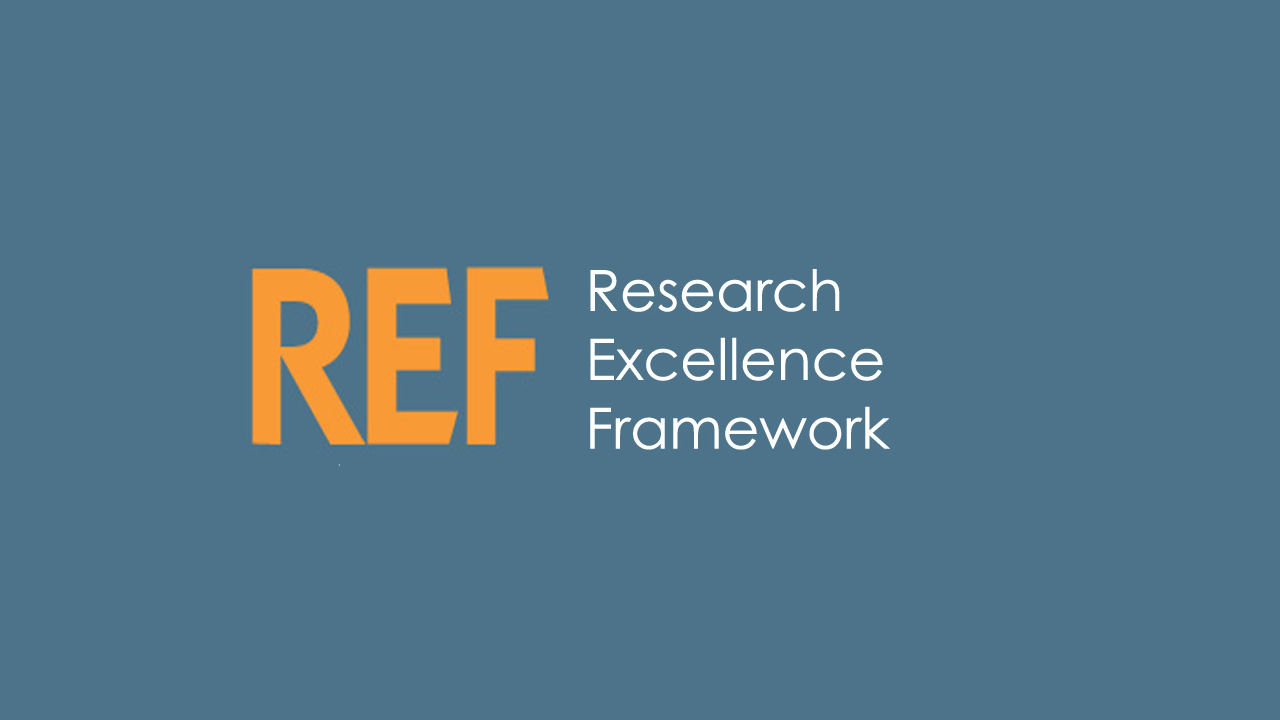This summer we were happy to collaborate once more with Station1. What is Station1? We caught up with MIT professor, scientist and engineer, social entrepreneur and Station1 founder Christine Ortiz to learn a bit more about this new higher education institution and model of “socially-directed” scientific and technological research.
Station1 mission
The Station1 mission is to expand educational opportunity and to enable future scientists and engineers to develop ethical, equitable, and sustainable technologies and scientific research, in order to foster a positive impact on society.
Station1 was built on many years of projects, collaborations, prior educational programs, and educational research on teaching and learning. The flagship Station1 Frontiers Fellowship is a transformational ten week residential science and technology education, research, and internship program focused on societal perspective and impact.
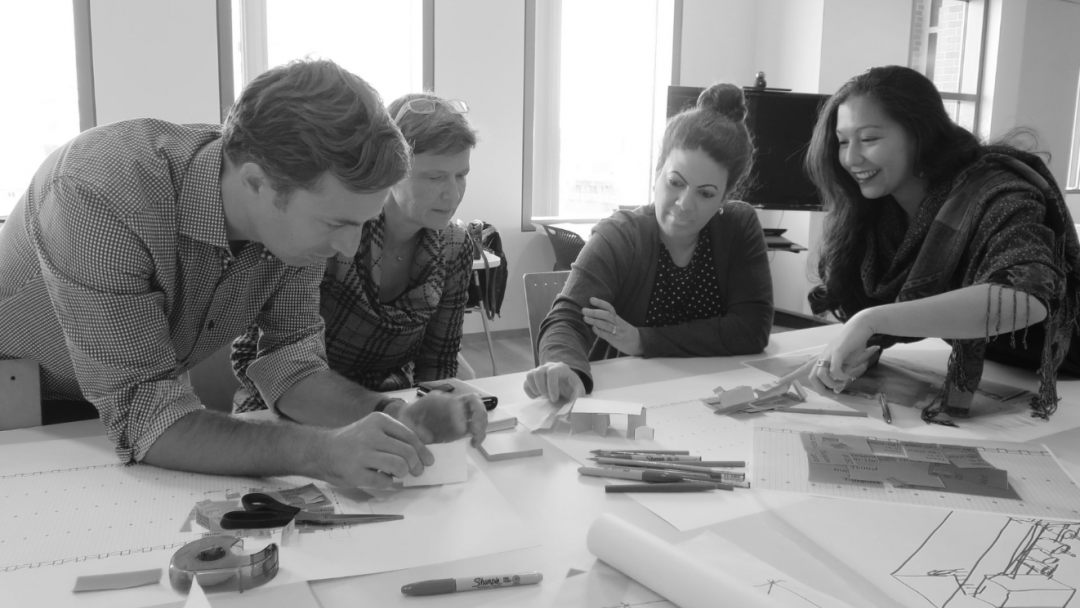 Christine Ortiz (second from right), Station1 founder.
Christine Ortiz (second from right), Station1 founder.Unbounded and Inclusive Learning
In mid June, the Station1 Fellows arrived to Lawrence, Massachusetts from all over the country traveling from as far away as Florida, Texas, California, Nevada, and Puerto Rico. Several students are immigrants to the U.S., born in Cuba, Rwanda, Ethiopia, and Mexico. 100% of the Fellows were first generation to attend college, low income, and/or students of color. Students were recruited from undergraduate STEM (Science, Technology, Engineering, and Math) degree programs at community colleges, minority-serving institutions, and baccalaureate institutions. The Station1 Fellows participated in 300+ hours of STEM research projects in internships in leading science and technology companies and university laboratories in emerging fields. Simultaneously, the Fellows engaged with a shared curriculum, unique in the nation and the world, of over 100+ hours that explored the intersection of personal passions, visions, and the deep societal impacts of frontier science and technology.
On the first day of the summer the instructional team greeted all of the students together. And the Station1 team did so much more than just teach. The team members served as foundational mentors for the students and helped them fully engage in the experience k. All expenses were paid – the fellowship package included a competitive living and travel stipend; housing, transportation, an internship placement in a leading science and technology company or research laboratory; a state-of-the-art research and development project in science and technology; mentoring by a team of dedicated Station 1 instructors; participation in a four-day leadership institute; and a formal personal and professional development curriculum.
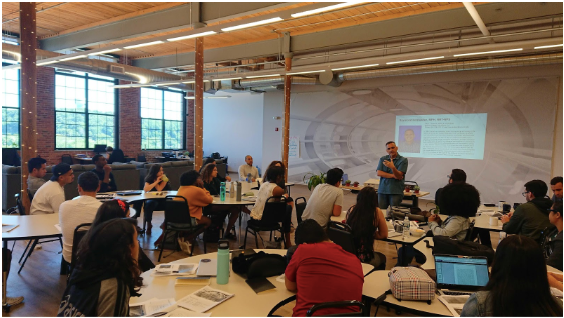
Station1 is based in a beautiful and unique 4500 square foot custom designed learning space, co-located with loft apartments for student housing, at Riverwalk, a historic mill along the Merrimack River, based in Lawrence, Massachusetts, a dynamic city with a rich industrial history and burgeoning creative and multicultural ecosystem. The spirit of Lawrence embodies the values of Station1 – inventive, diverse, civic-minded, a place that brings together the past, present, and future in inspiring and productive ways along the beautiful Merrimack River. The learning space aims to integrate the digital (with tools like LabArchives) and the physical seamlessly, with inclusion positioned at the core of its design and use.
PROMISE AND PERIL
The Station1 curriculum on socially-directed science and technology takes students on a journey where they interrogate the promise and peril of scientific and technological advancement from a historical, contemporary, and future-facing perspective. The curriculum has been developed with an interdisciplinary, integrated, and inclusive approach. Students study the broader context of their research projects in relation to society, including historical context, equitable considerations, and sustainability impacts, both positive and negative. Students gain knowledge of the mechanisms, concepts, and methods for positive social change, innovation, and impact and increase their commitment and ability to foster the development of thoughtful, responsible, equitable, ethical, and sustainable scientific research and technologies.
Station1 utilized LabArchives as the digital platform to deliver its curriculum, and served as an electronic lab notebook, as well as a instructional tool for facilitating blended (virtual and face-to-face), active, and inquiry-based learning. The platform fostered an outstanding learning experience that greatly enhanced the pedagogical approaches and learning outcomes of Station1 and more details can be found here.
A quote from a 2019 Station1 Fellow is as follows: “Station1 and this summer, as a result, has been a life-changing experience. The Instructors gave me the space to be creative, think deeply, and make calculated goals and aspirations to be a future leader in a wide array of disciplines. They helped me embrace my true passion for helping people in urban communities and gave me the advice to be the leader and trailblazer in equitable education and policy. I will always remember this experience as one that changed my career trajectory forever and I couldn’t be more honored to have been selected for such a once in a lifetime opportunity. I only hope something like this can be offered to more students of color and those of disadvantaged backgrounds to help others find their true passions and be the socially driven leaders of the future. Thank you for everything.”
Real world internships with companies working to change the world
The internships fostered the Fellows technical, professional, and personal advancement. Students carried out research projects in emerging areas of science and technology such as computational biotechnology, bio-manufacturing, agricultural technology, civic technology, inclusive social media, advanced manufacturing and digital automation, autonomous aeronautics, and nanoscale materials design. Projects spanned multiple disciplines and included topics such as providing internet to rural areas using an autonomous aerostat, 3D-printing of artificial lungs, fostering urban mobility using electric vehicles, developing therapeutics for the opioid crisis, and visualizing and analyzing public datasets to unlock insights into civic issues.
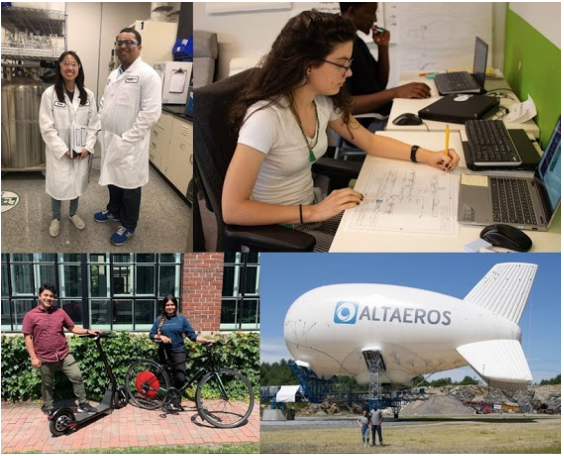 Station1 fellow internships included working on Altaeros blimps that will deliver rural wifi, e-scooters and so much more!
Station1 fellow internships included working on Altaeros blimps that will deliver rural wifi, e-scooters and so much more!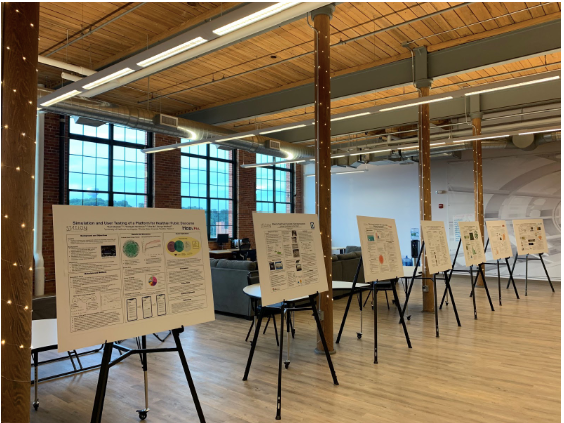 Fellows’ final presentations included a poster session on their internship work.
Fellows’ final presentations included a poster session on their internship work.The future
As Station1 prepares for its’ third year of operation, in addition to expanding the Station1 Frontiers Fellowship (students can apply here) and other educational activities, Station1 will be focusing on translating the socially-directed science and technology model to other institutions, developing socially-directed research projects, and supporting social ventures. Station1 is developing partnerships in all of these areas. Interested? Email info@station1.org

















